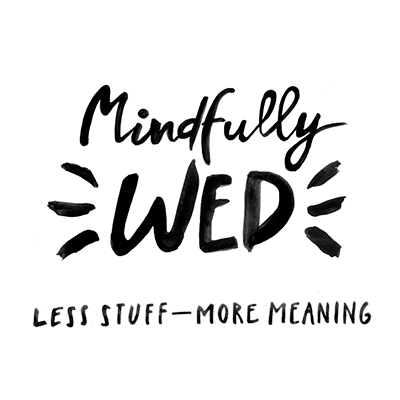
Words by Isiah McKimmie
Photos by Red Eclectic
As a Couples Therapist and Sexologist, I’ve had the privilege of working with thousands of couples at every stage of their relationship—from the excitement of new engagements to decades of marriage.
Over the years, I’ve studied what makes relationships successful, and just as importantly, what can predict separation or divorce. (I share what they are in this free guide.)
I’m passionate about helping couples create strong, lasting relationships—relationships that stay happy and where partners can overcome challenges together.
In my 15 years working with couples, I’ve seen that many of the challenges couples face later in marriage could have been mitigated, or even avoided, if they’d had certain (often difficult) conversations much earlier.
For you, dear Mindfully Wed readers, I want to share some of the conversations I believe every couple should have before getting married—discussions that go beyond the norm to get to the core of what truly makes a marriage strong, happy, and lasting.
Regardless of how long you’ve already been together, these questions can help you build trust and intimacy and set your relationship up for long term happiness.

Why Standard Premarital Questions Won’t Prepare You for Marriage
When couples prepare for marriage, they’re often encouraged to ask each other practical questions like “How will we split household chores?” or “What’s your approach to budgeting?” While these are important conversations, they don’t dig deep enough into the emotional and relational aspects that truly sustain a marriage.
In my experience, the usual premarital questions focus primarily on logistics. They’re designed to help couples avoid future conflicts about things like finances or family planning—but it doesn’t address the underlying emotional dynamics that sustain or break a relationship in years to come.
The regular lists of pre-marital questions treat your relationship like a checklist, without exploring underling meanings, how you can emotionally support one another (a key to relationship success), or how you plan to grow together over time.
For example, discussing how often to have sex might seem helpful on the surface, but without understanding each other’s emotional needs and how intimacy changes over the years, this conversation can quickly lead to unmet expectations and frustration. Similarly, talking about where to live doesn’t account for how each person handles major life changes or stress.

Why “How Often Will We Have Sex?” Won’t Cut It: 6 Common Premarital Questions that don’t go far enough
- How will we split household chores?
Why it might not help: This focuses on practicalities but ignores the deeper emotional conversations about fairness, mutual respect, and how each partner feels valued. It reduces a partnership to task management rather than exploring the emotional dynamics beneath these roles.
- How do you feel about having kids?
Why it might not help: While the decision to have children is important, this question is often asked without addressing the broader emotional landscape—such as fears, expectations around parenting roles, and how partners envision raising children while maintaining their relationship. It focuses on a yes/no answer rather than exploring how each partner feels about parenthood emotionally and relationally.
- What’s your approach to budgeting and finances?
Why it might not help: This is a practical question that doesn’t dive into the deeper emotional aspects of money in relationships, like financial insecurity, underlying fears about financial stability, or how money can be a source of stress or safety for each person. It also doesn’t address power dynamics around finances or emotional attachment to spending/saving habits.

- Where do you see us living long-term?
Why it might not help: While it’s useful to discuss long-term living arrangements, this question centers around a logistical decision and doesn’t tap into emotional factors like how each partner handles change, how moving might affect them emotionally, or what it means to feel “at home” as a couple.
- How often do you want to have sex?
Why It Might Not Work for You: This question focuses on sexual frequency without addressing the nuances of sexual desire, intimacy, emotional connection, or how partners can keep desire alive over time. It also oversimplifies the complexities of a couple’s evolving sexual relationship, ignoring emotional and psychological factors that impact sexual connection.
- How do we handle arguments?
Why it might not help: While conflict resolution is important, this question can feel too broad and transactional. It may not address how each person emotionally experiences conflict, their triggers, attachment patterns, or how to create emotional safety during disagreements. It lacks depth around understanding the emotional processes each partner goes through during arguments.
That’s why I believe couples need to go beyond the practicalities and dig into the emotional and psychological aspects of their relationship. These are the conversations that truly determine whether a marriage will thrive or struggle.

Going Beyond the Basics: Why Deep Conversations Matter
When it comes to building a strong foundation for marriage, the conversations that really matter aren’t just about managing household chores or making financial plans. They’re about emotional safety, growth, intimacy, and how you’ll support each other through life’s inevitable challenges. Here are the key discussions that every couple should have before saying “I do.”
- What’s Your Attachment Style, and What Does It Mean for How You Process Emotions?
Why it’s helpful: Attachment styles play a huge role in how we navigate emotions, conflicts, and intimacy in relationships. Understanding each other’s attachment style is key to building emotional safety and learning how to support each other during emotional highs and lows.
Knowing your partner’s attachment style helps you understand how they process emotions and react to conflict. It also provides a foundation for creating trust and emotional safety in the marriage.
- How Do You Recharge and Find Balance When Life Gets Overwhelming?
Why it’s helpful: Instead of focusing on hobbies or relaxation activities, this question goes deeper, asking how each person manages stress emotionally and how they can be supported through overwhelming times. When you understand how your partner recharges, you can provide the right kind of support during difficult moments. This helps to reduce tension and maintain a strong connection even during stressful periods.
- What Kind of Legacy Do We Want to Build Together—Emotionally, Relationally, and Spiritually?
Why it’s helpful: Marriage is about more than just getting through the day-to-day. This question encourages couples to think long-term about the emotional, relational, and spiritual legacy they want to create together. Aligning on a shared vision for your relationship helps guide your choices and strengthens your bond by giving you a sense of purpose as a couple.

- What Does Growth Look Like for You as an Individual, and for Us as a Couple?
Why it’s helpful:This question opens a conversation about how both partners want to grow—individually and together. It encourages reflection on personal goals, relationship goals, and how they can support each other’s evolution. A healthy marriage is one where both individuals and the relationship are constantly evolving. Understanding what growth looks like for each partner ensures you stay aligned as life changes.
- How Do We Want to Stay Connected, Both Emotionally and Physically, During Times of Change or Stress?
Why it’s helpful: Rather than focusing only on sex or conflict resolution, this question looks at the broader picture of staying connected during stressful times. It addresses how to maintain emotional and physical intimacy when life is in flux. Without intentional efforts to stay connected, couples can drift apart. Discussing how to prioritize your relationship during tough times will help keep your bond strong and resilient.
- What Fears or Insecurities Do You Have About Marriage, and How Can We Address Them Together?
Why it’s helpful: Everyone brings fears and insecurities into a relationship. This conversation encourages vulnerability, allowing both partners to share their concerns and feel supported as they navigate uncertainties together. By discussing fears and insecurities openly, couples build trust and create an environment where both partners feel understood and accepted, laying the groundwork for a stronger marriage.
Having these deeper conversations before you say “I do” isn’t always easy, but I honestly believe it’s one of the most powerful ways to set your relationship up for success. Exploring your emotional needs, growth, and connection helps you lay the foundation for a marriage that can thrive through any challenge.
You have the strength, the awareness, and the love to build a relationship that will last—starting with the conversations that matter most.
Planning a wedding can be exciting, but it also brings its challenges. To help you stay connected and strengthen your bond throughout the process, I’ve created a free guide packed with practical tips and conversation starters. Download it here and keep your relationship thriving, not just on your big day, but for the long haul.

Isiah McKimmie is a Couples Therapist and Sexologist who’s built her reputation on giving balanced advice and practical tools that work to help couples create thriving relationships and more enjoyable sex. Download her free guide to thrive through your wedding and beyond.
Images from a Styled Shoot in Fremantle, Western Australia
Photographer: Red Eclectic
Florist: Euka Floral Design
Short Wedding Dress: Elope Bridal
E-Bikes: Tiller Rides


